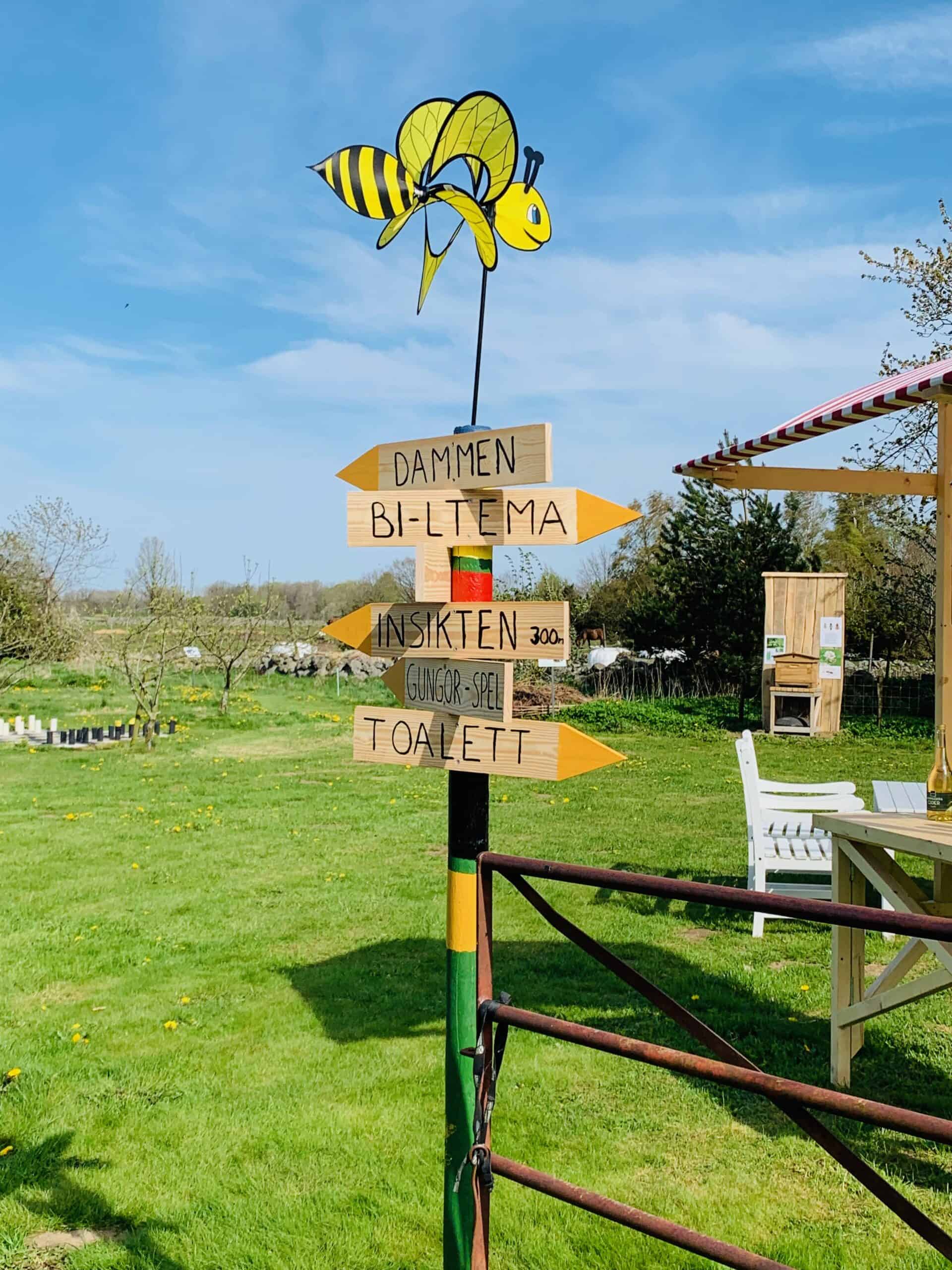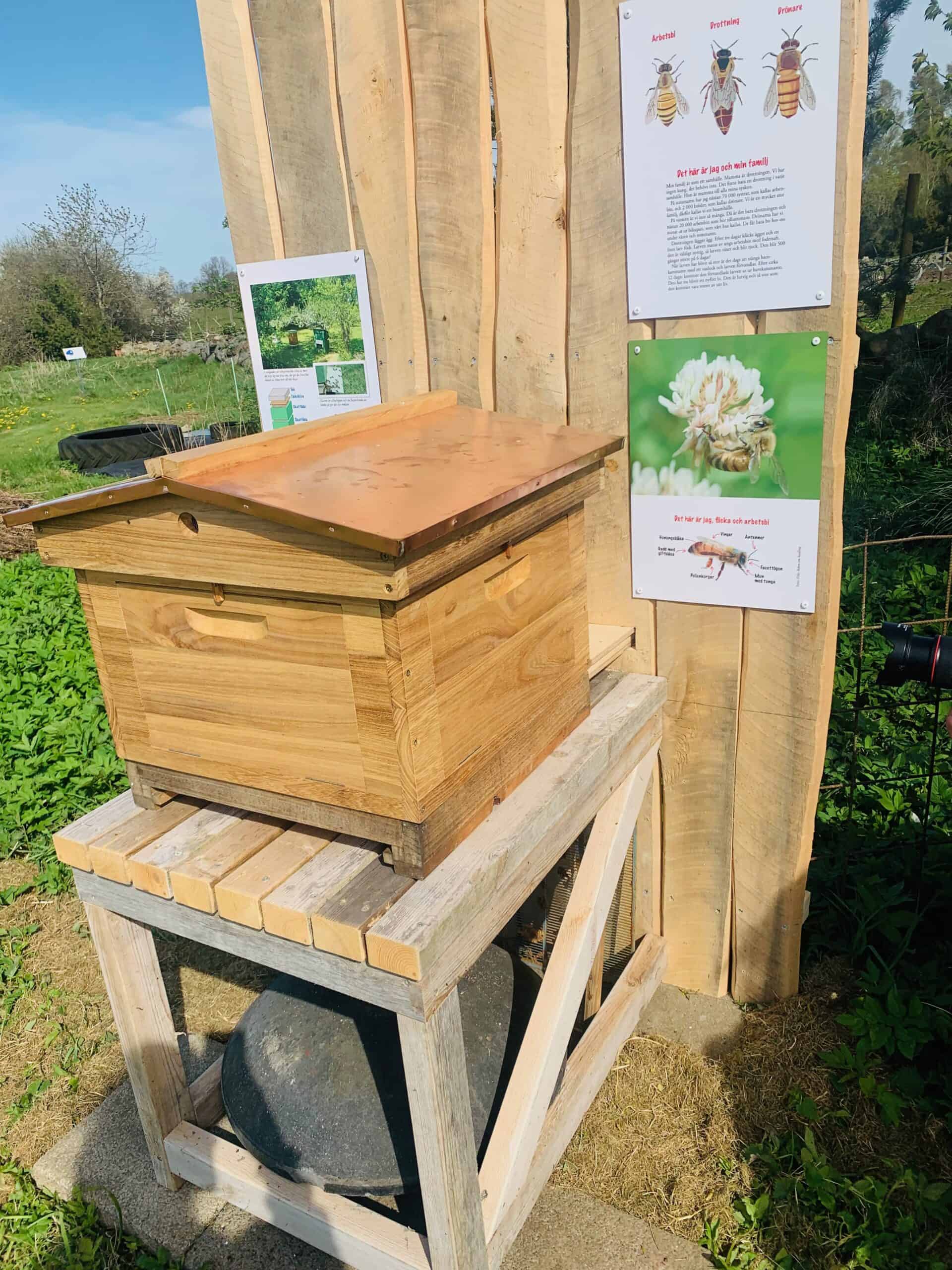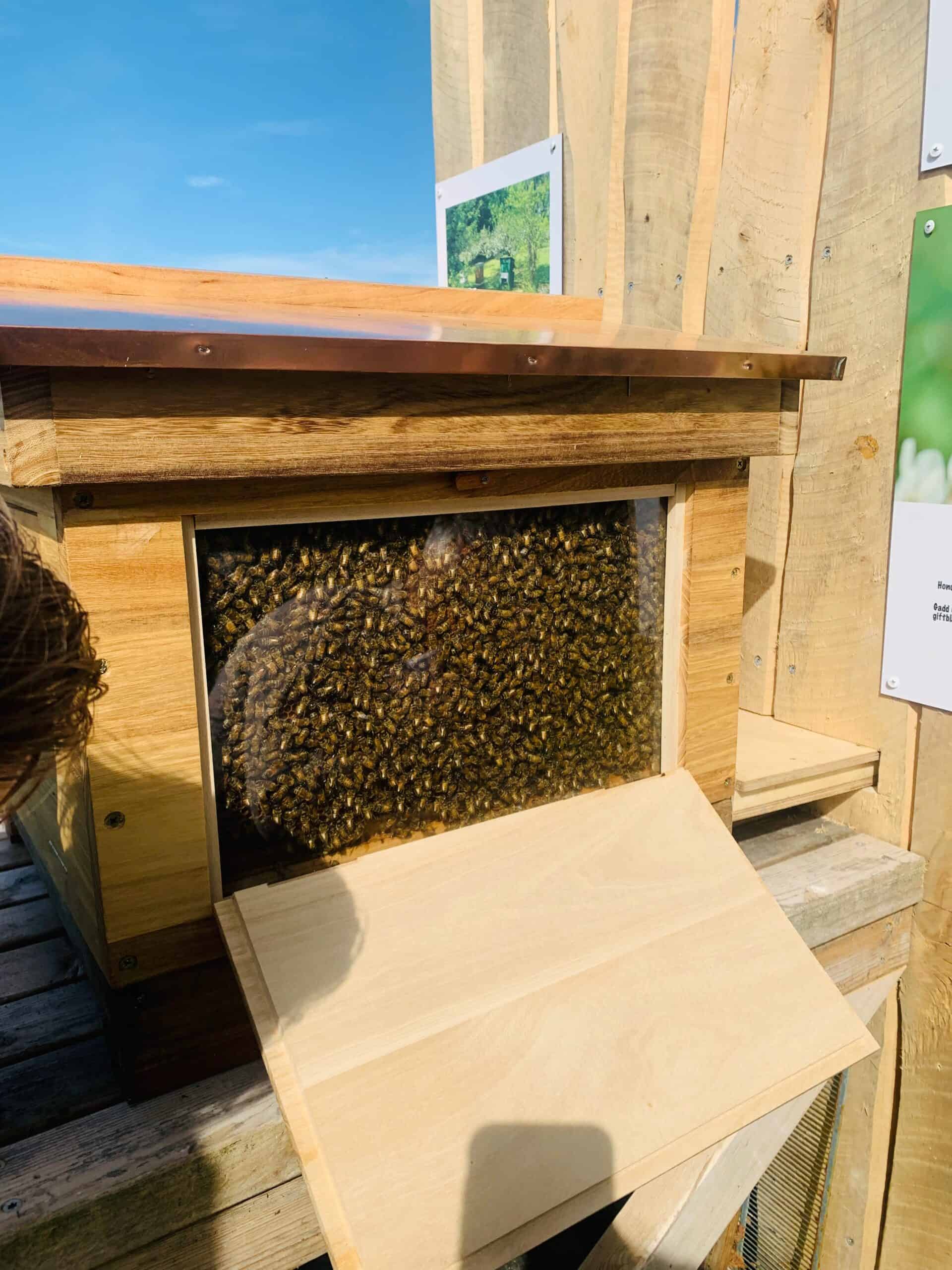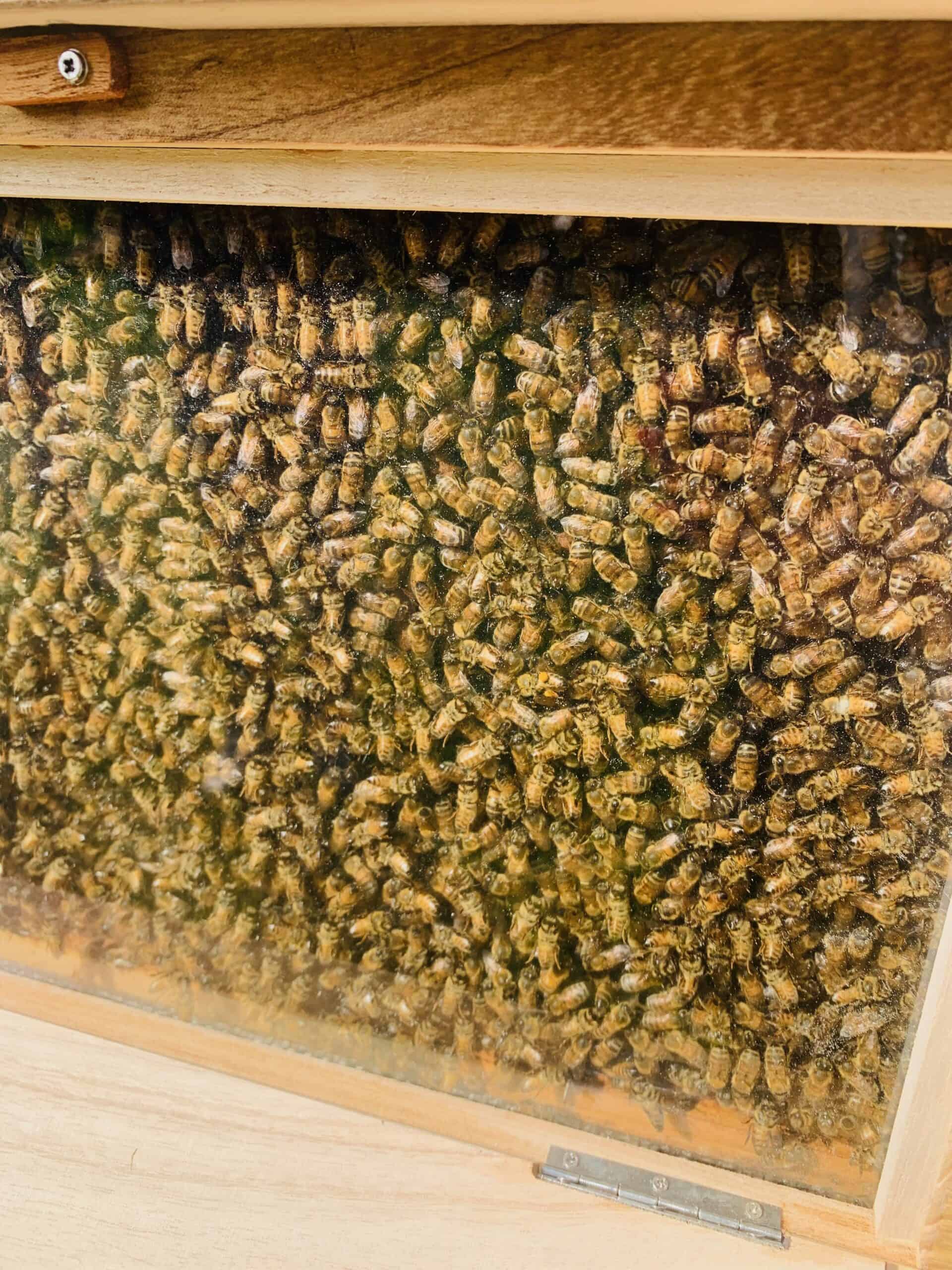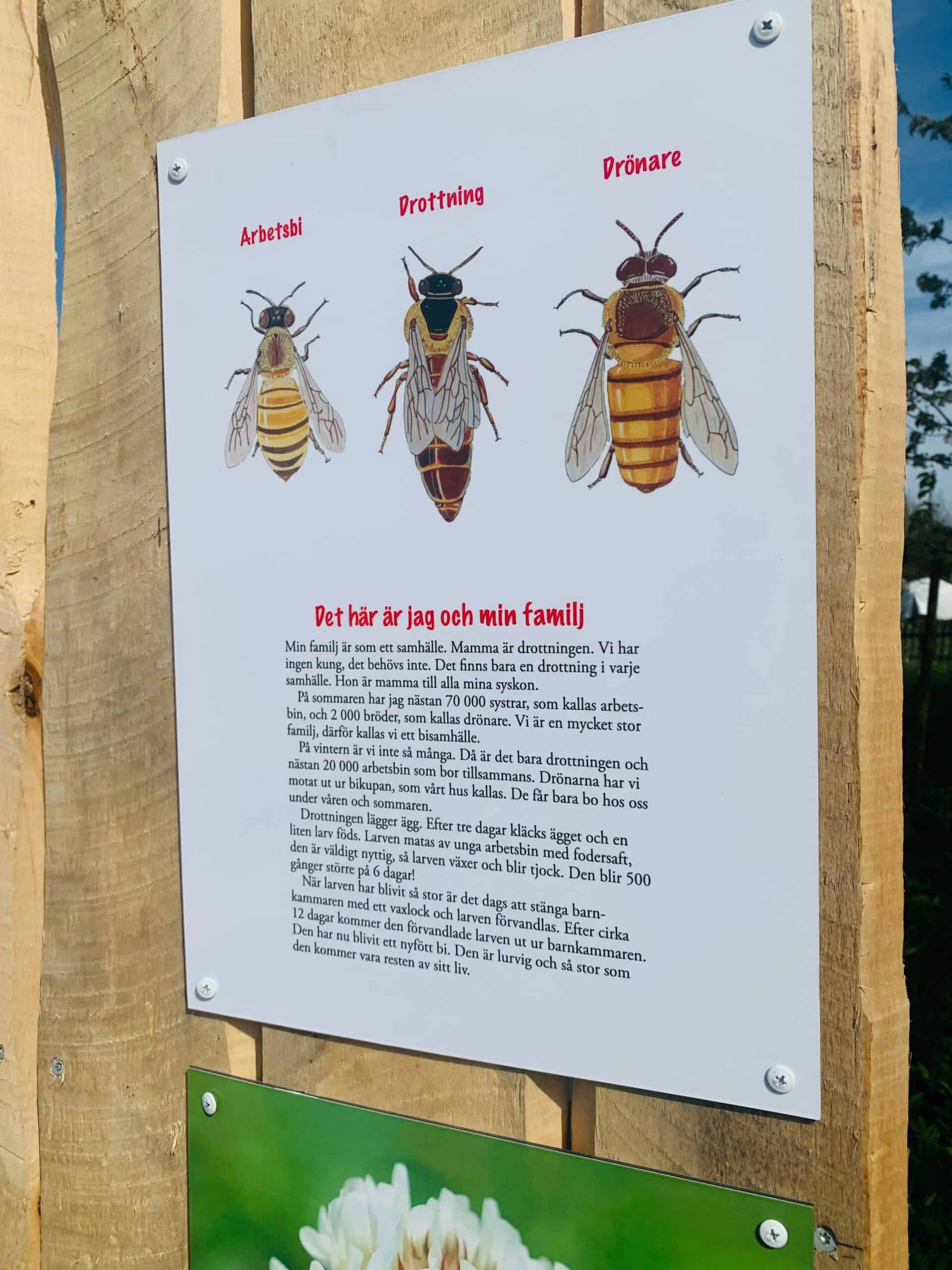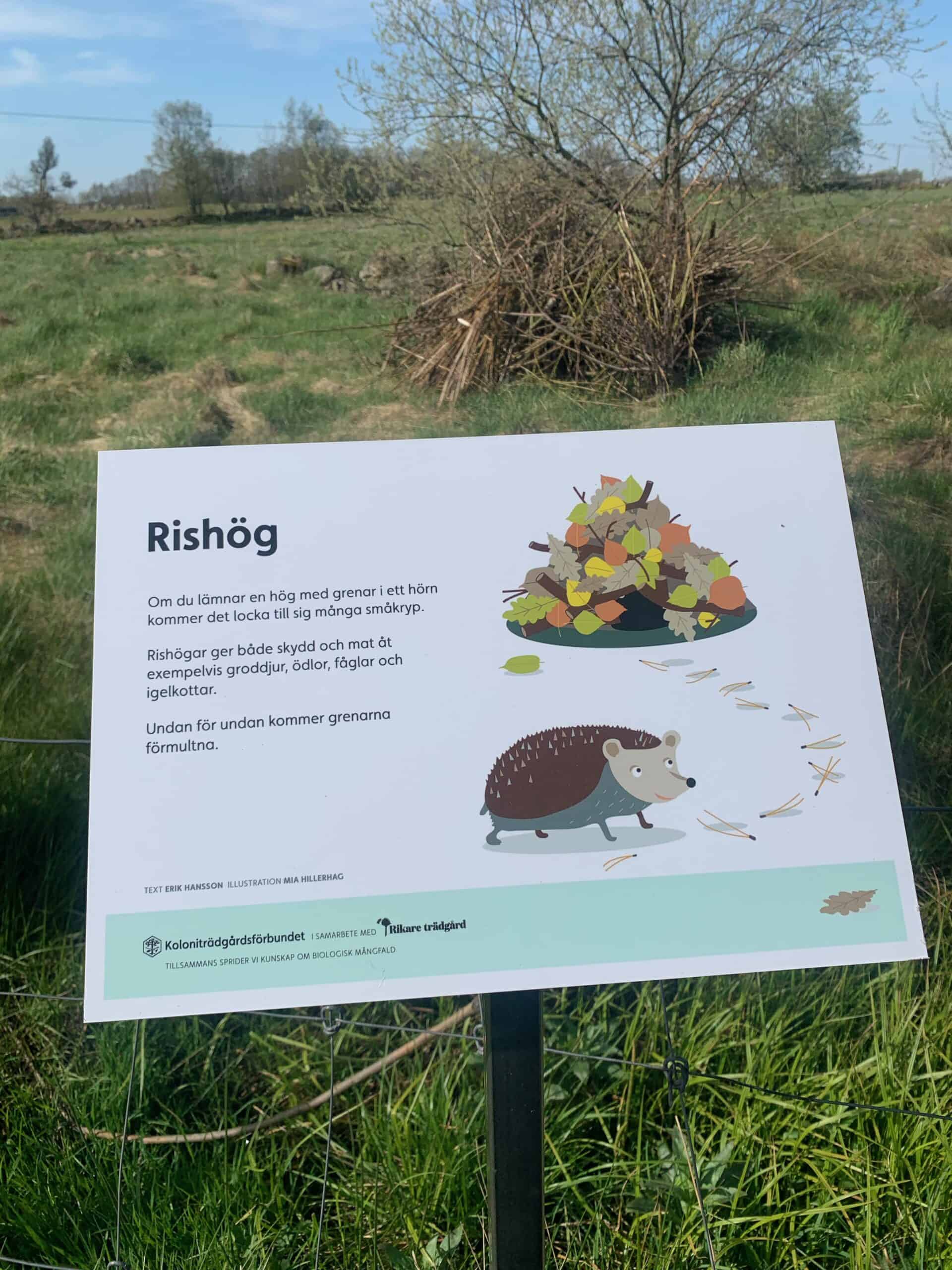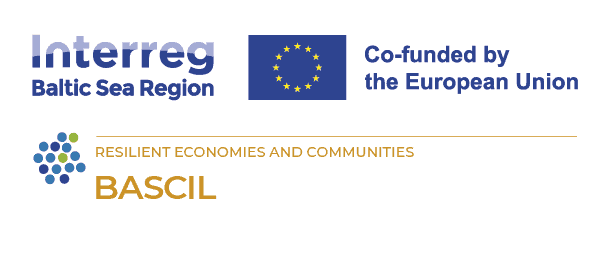
Project story: Beekeeping expands with knowledge garden
25 June 2024
The importance of bees for our food supply has recently been highlighted significantly. The role of bees and other pollinators in maintaining biodiversity cannot be overstated.
One of the six local companies receiving development support from Krinova through the Bascil project is linas och binas — a local beekeeper operating in the village of Sillaröd in southern Sweden, producing organic honey and bee pollen.
Aligning perfectly with the purpose of the Bascil project, linas och binas has taken a significant step in transforming and expanding its operations with an attractive offer for visiting tourists. They have expanded their beekeeping with a knowledge garden where visitors can learn about the environment and biodiversity, and last but not least, observe live bees up close.
— My support and our dialogue have mainly focused on highlighting the unique elements they already have; the place, the people, and the products, says Krinova’s business designer Johanna Gerberich. They have now beautifully packaged this and created a unique offer with a clear connection to the local area, which also contributes to knowledge about nature and biodiversity, concludes Johanna, who was present at the opening on May 3rd.
Support from the municipality accelerated the project
In addition to support and coaching from Krinova’s business designer Johanna Gerberich, linas och binas also received a grant of 50,000 SEK from Tomelilla Municipality to develop their knowledge garden.
— Bees and their pollination are crucial for a vibrant rural area and enablers for food and food culture, so it’s exciting to help linas och binas create an engaging and educational destination, says Henrik Lundblad, Head of Exploitation and Business at Tomelilla Municipality.
Family farm with shop and garden
Since 2008, Lina Norrsell, an experienced beekeeper with a journeyman’s certificate in beekeeping, has run linas och binas together with her mother Eva Norrsell. From the start, it was clear that the company would be run organically and be KRAV-certified.
— For me, sustainability and biodiversity have always been a major driving force in the business. Being able to share my knowledge and inspire others to think more about the environment feels good, and through the municipality’s grant, I can now develop this further, says Lina Norrsell.
The garden is large and inviting, and in addition to the knowledge walk, there are comfortable places for relaxation, social games, and play for children. Inside the farm shop, visitors can taste different kinds of honey, and there is also a simple café. To offer visitors access even on days when they are out harvesting honey or working with the bees, both the shop and the garden are open with self-service every day from 9 am to 5 pm. Outside the shop, there is a specially designed observation hive where you can study the bees and their work up close through the glass.
Pilot test during the summer season
With the opening of the knowledge garden, linas och binas has now taken a significant step in transforming and expanding its operations with an attractive offer for visitors. Initially, the primary target group is summer visitors in Skåne, as well as families living in Skåne who take day trips in the surrounding area. During the summer season, the operation will be pilot-tested and then evaluated for further development. In the autumn, linas och binas may also have the opportunity for synergy and experience exchange with beekeepers from the Estonian pilot region Jõgevamaa, who are also participating in the Bascil project.






